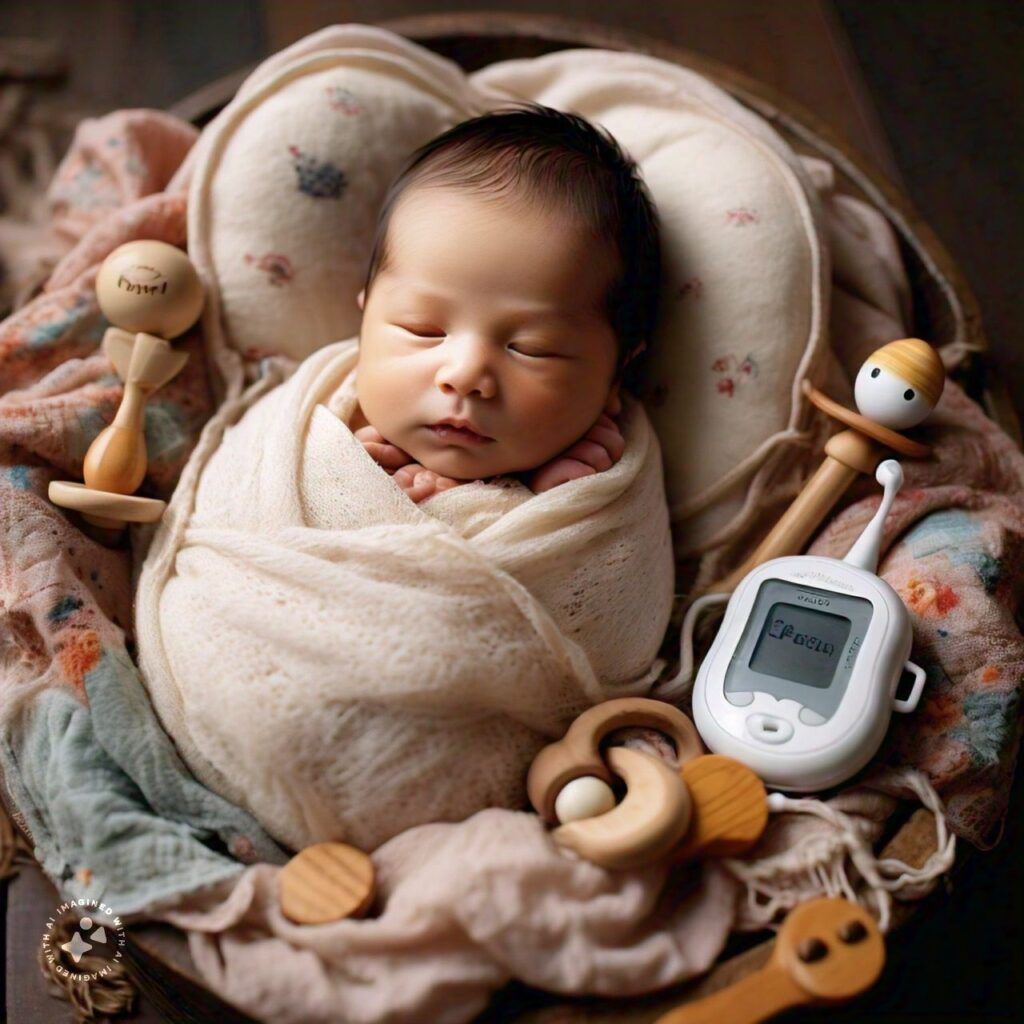The arrival of a newborn marks a profound moment of joy and wonder for parents and families. The first day of a newborn’s life is filled with an array of emotions, observations, and experiences that lay the foundation for the baby’s future growth and development. This critical period is characterized by the baby’s adjustment to the outside world, bonding with family, and the initiation of essential medical care.

The First Breath: Adjusting to the Outside World
The transition from the womb to the outside world is a significant event for a newborn. The baby’s first breath marks the beginning of life outside the mother’s body, as the lungs expand for the first time to intake air. This moment is often accompanied by a hearty cry, a reassuring sign that the baby’s respiratory system is functioning properly.
Initial Medical Assessments
Immediately after birth, medical professionals conduct several assessments to ensure the baby’s health and well-being. The Apgar score, measured at one and five minutes post-delivery, evaluates the baby’s heart rate, respiratory effort, muscle tone, reflex response, and color. This quick assessment helps determine if the baby needs any immediate medical intervention.
Skin-to-Skin Contact and Bonding
Skin-to-skin contact between the newborn and the parents, especially the mother, is highly encouraged immediately after birth. This practice, often referred to as “kangaroo care,” helps regulate the baby’s temperature, heart rate, and breathing. It also promotes the release of oxytocin, a hormone that fosters bonding and breastfeeding.
The First Feeding
Feeding is a crucial aspect of a newborn’s first day. Whether breastfeeding or formula feeding, the first feed is an important milestone. Colostrum, the initial breast milk, is packed with antibodies and nutrients that are vital for the baby’s immunity and nutrition. For mothers and babies, the first feeding session is a learning experience that sets the stage for future feeding patterns.
Observing Newborn Reflexes
Newborns come equipped with several instinctive reflexes that are indicators of a healthy nervous system. These include the rooting reflex (turning the head towards a touch on the cheek, seeking to suckle), the Moro reflex (a startle response to sudden movements or loud noises), and the grasp reflex (grasping a finger placed in their palm). Observing these reflexes can be both fascinating and reassuring for new parents.
The Importance of Rest
Despite the excitement surrounding the birth, it’s essential for the newborn to get plenty of rest. Newborns typically sleep for 16 to 18 hours a day in short bursts. This sleep is crucial for their growth and brain development. Parents are encouraged to use this time to rest and recuperate as well, adapting to the new sleep schedules.
Emotional Moments and Firsts
The first day is often filled with unforgettable moments: the first time the baby opens their eyes, the first cry, the first time they are held by a grandparent. These emotional moments create lasting memories and are often captured in photos and videos, becoming cherished keepsakes for years to come.
Initiating Documentation
Hospitals usually begin the process of documentation and official paperwork on the first day. This includes filling out the birth certificate, choosing the baby’s name, and sometimes, taking the baby’s first official photograph. These documents are essential for the baby’s legal identity and future administrative processes.
Support and Guidance
Healthcare professionals provide new parents with a wealth of information and support on the first day. This includes guidance on feeding techniques, diapering, bathing, and recognizing signs of common newborn conditions. Nurses and lactation consultants are valuable resources, offering practical advice and emotional support.
Looking Ahead
The first day of a newborn’s life is just the beginning of a remarkable journey. While it is filled with critical adjustments and overwhelming emotions, it also lays the groundwork for a lifelong bond between the baby and their family. As the baby grows and develops, each new day will bring its own set of challenges and triumphs, continuing the incredible story that began with that very first breath.
In conclusion, the newborn’s first day is a whirlwind of activity, emotions, and adjustments. It’s a day marked by medical assessments, bonding, first feedings, and the initiation of lifelong connections. Parents, supported by healthcare professionals, embark on this new journey with their newborn, cherishing each moment and looking forward to the days and milestones ahead.
4o



